At U.N. Security Council, Russia Counters Trump Gaza Plan With Its Own

© Saher Alghorra for The New York Times


© Saher Alghorra for The New York Times
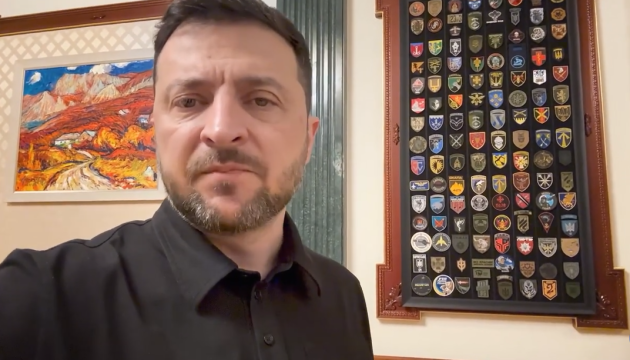







Operation Midas revealed a systemic management failure at Energoatom, one of Ukraine’s largest state companies. But things can get much, much worse.
How the government responds will determine if this scandal only affects the nuclear operator, or every other state company, destroying years of hard-won reforms that tried to lift Ukraine out of its Soviet past. For now, the government is not off to a great start.
Prime Minister Yuliia Svyrydenko announced three decisions after news of the corruption scandal broke:
However, it later emerged that another decision was adopted on the same day, without being announced — effectively nullifying independent performance evaluation for supervisory boards of all strategic state-owned enterprises (SOEs), not just Energoatom.
These steps, in combination, raise serious concerns that a reform rollback is possible. If that happens, it can lead to more political meddling at SOEs, paving the way for a new wave of systemic scandals in the future.
This can weaken the greatest pillars of Ukraine’s economy during a time of war, compromise the country’s future recovery, erode its integration into the EU, and make it more like Russia, something that thousands of volunteers fought tooth and nail to prevent.
Energoatom runs the nuclear plants and is responsible for more than half of the country’s power generation.
Like other strategic SOEs, Energoatom went through corporate governance reform in 2023 and 2024, to establish efficiency and transparency. Part of this reform involved creating a supervisory board — the first one Energoatom had in history.
This was supposed to break Ukraine's Soviet legacy of state enterprises where ministers acted as owner, manager, and controller simultaneously — a system where only 15% of Ukraine's 3,100 state enterprises turned a profit, while the rest accumulated $16.7 billion in debt between 2018 and 2023.
The 2024 reform, a prerequisite for EU membership and IMF funding, aimed to replace political appointments and extraction schemes with independent boards selected through transparent competition. It was meant to finally complete what reformers started in 2014.
For Energoatom, proving Ukraine could manage strategic assets to OECD standards is essential for attracting the billions in reconstruction investment the country desperately needs.
In theory, the system should work as follows: the state sets strategic goals and appoints a supervisory board to ensure their implementation. The board hires and oversees management. The state then evaluates whether the board has fulfilled its mandate.
In practice, however, the board’s independence was compromised from the start.
Despite official statements denying political interference, real events suggested otherwise. A six-month delay in signing contracts with newly elected board members — which prevented the board from starting its work — led to the resignation of independent member Timothy Stone.
As a result, the supervisory board never obtained the legally required majority of independent members. And it subsequently failed in its responsibilities:
Members of supervisory boards at SOEs must fully understand their fiduciary duties.
If a board cannot explain what it has done over the past year to prevent or detect corruption schemes in a company long associated with scandals — and provides only vague general statements — this indicates a lack of due care.
As such, the Ministry of Economy’s position that the supervisory board “was not involved” in the actions under investigation seems unclear. While board members were not beneficiaries or perpetrators of the corrupt schemes, their core responsibility was precisely to ensure such schemes could not occur.
Even more contradictory is the Ministry’s claim that this board “helped establish modern corporate governance processes.” If large-scale corruption was allowed to flourish, it is difficult to describe the system as modern or effective.
A comparison with the banking sector is instructive: managers and board members whose banks collapse lose their impeccable business reputation and are barred from similar positions. At Energoatom, however, the board under whose watch corruption thrived was essentially thanked for “building modern corporate governance.”
One of the government’s first reactions to the scandal was to prematurely terminate the powers of this board.
At first glance, this may seem logical: the board is the key element of the corporate governance system and is accountable to the state as the owner.
However, the way the government went about it — firing from the hip while ignoring legal procedures —may suggest that it’s more interested in sweeping the problem under the rug than solving it.
The Law On the Management of State Property Objects contains an exhaustive list of grounds for early dismissal of supervisory board members.
Nothing on that list says you can fire the board based on a subjective assessment of ineffectiveness.
The decision must rely on a formalized performance evaluation. Since no proper evaluation was conducted, the government likely lacked legal grounds for the dismissal.
Even the government’s amendments adopted on 11 November, allowing evaluations to be conducted solely by Energoatom’s owner (the Cabinet of Ministers through the Ministry of Economy) — without independent consultants — do not eliminate the requirement to actually perform the evaluation.
Under the legally-mandated procedure:
None of this could reasonably have been completed in a single day. The absence of a published evaluation report, which is explicitly required by law, further indicates that the evaluation did not take place.
If this violation of a core reform safeguard is ignored, protection of SOE supervisory boards from political interference will collapse. If Energoatom’s board can be dismissed in this manner, any SOE board could be dismissed next, regardless of objective justification.
The Ministry of Economy stated that, in coordination with G7 partners, it would propose a new board composition within a week.
However, the procedures established by law and Cabinet resolutions 142, 143, and 777 require:
This process typically takes at least three months. Completing it in seven days is not realistic under current rules.
Some stages may be accelerated in exceptional circumstances, but bypassing transparency and competition is not flexibility — it is regression. Transparent, merit-based selection is a cornerstone of sound corporate governance. Any informal or opaque approach will further erode trust.
The inconsistency is striking: the government can amend resolutions overnight when it seeks to weaken transparency (as with the evaluation procedure), yet has failed for months to approve reforms aimed at strengthening selection rules — despite these being legal obligations and long-overdue IMF benchmarks.
This explains why official claims of “commitment to reform” now face skepticism.
A key win of the 2024 reform was the introduction of regular performance evaluations of SOE supervisory boards. The law required the Cabinet to define procedures and specify cases where an independent consultant is mandatory.
The core principle was clear: board effectiveness must be assessed based on objective evaluation, not political judgment.
However, on 11 November, the government decided that, during martial law, evaluations will be conducted solely by the ministry that owns the SOE.
This enables ministries to unilaterally determine supervisory board effectiveness without independent oversight.
This marks a return to direct state control over these companies. Any supervisory board can now be dismissed at a ministry’s discretion — a practice common before the 2024 reform.
Also, the legality of the amendment is highly questionable. The 2024 reform law clearly defines the list of exceptions allowed during martial law — and none of them involve evaluating a supervisory board’s performance.
Corporate governance cannot be strengthened by methods that undermine its core principles: procedural integrity, transparency, and independence.
Operation Midas demonstrated that Ukraine still operates within a framework of simulated corporate governance.
The reform will become real only when:
Violating established rules in pursuit of a “quick result” is not reform — it is dismantlement. Unless these decisions are reversed, Operation Midas will be only the first in many similar scandals to come.

Les autorités disent avoir découvert qu'AliExpress et Joom vendaient aussi des poupées pédopornographiques.


Newhook a été opéré à la cheville. L'absence de Guhle, lui aussi opéré, se prolonge.

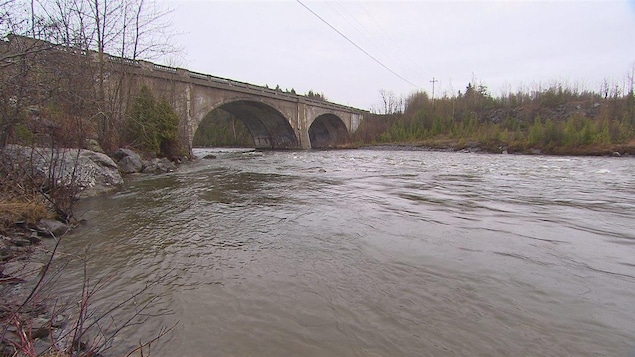
Les travaux visant le remplacement du pont Arthur-Bergeron sont officiellement lancés.



La librairie l’Alphabet de Rimouski célébrera son 50e anniversaire ce samedi 15 novembre, de 16 h à 19 h. Cette soirée soulignera cinq décennies d’engagement culturel.
Depuis sa fondation, l’établissement indépendant de la rue Saint-Germain Ouest est devenu un lieu essentiel de diffusion et de découverte littéraire, en résistant aux nombreux bouleversements du marché du livre.
Au programme des festivités du 15 novembre : toast en l’honneur de la librairie, dévoilement du logo du 50e anniversaire et du sac promotionnel, chasse aux cartes-cadeaux, concours de coloriage pour les enfants, soirée musicale et moments de convivialité.

Plusieurs tables thématiques mettront également en valeur les auteurs d’ici afin de célébrer la richesse littéraire régionale et québécoise.
Afin de remercier sa clientèle pour ces 50 années de fidélité, la librairie l’Alphabet offrira, du 14 au 16 novembre, un rabais de 20 % à l’achat d’un ou de plusieurs livres (offre valide exclusivement sur les livres).
L’Alphabet a été fondée le 6 juillet 1975 par Louisanne Ouellet et Jean-Louis Pelletier. Elle s’est rapidement imposée comme un acteur culturel incontournable à Rimouski.
En 2006, alors que les fondateurs prenaient leur retraite, la Société nationale de l’Est du Québec (SNEQ) est intervenue pour préserver la librairie, mettre sur pied un conseil d’administration et confier la direction à René Landry, rapidement rejoint par Céline Bilodeau.
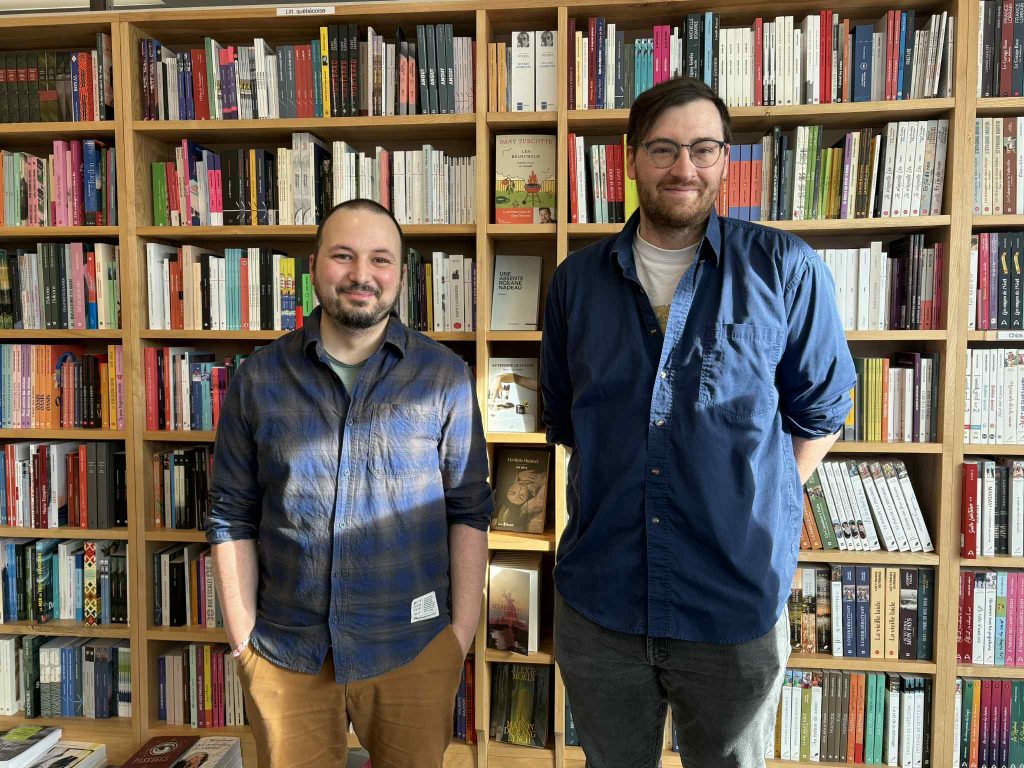
Aujourd’hui, l’Alphabet est dirigée conjointement par son directeur général, Mathieu Raby-Labelle, et son adjoint à la direction, Louis Poulain.
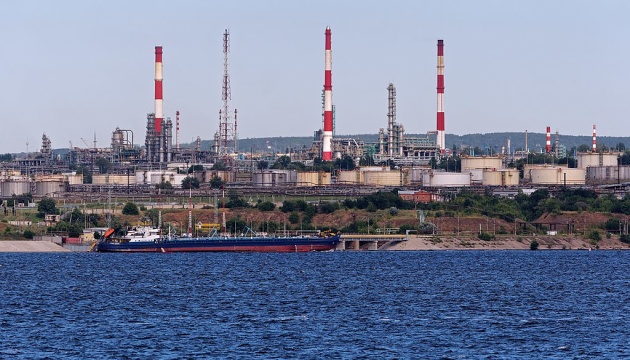

/2025/11/14/les-informes-du-14-novembre-2025-691785819a7b2500744700.jpg)
/2025/11/14/les-informes-du-14-novembre-2025-691785819a7b2500744700.jpg)
/2025/11/14/bac-69178bddecf8b526270798.png)
/2025/11/14/bac-69178bddecf8b526270798.png)


Ukraine has begun serial production of its new Octopus interceptor drone designed to take down Russia’s Shahed-type attack UAVs, Ukrainian Minister of Defense Denys Shmyhal announced on Friday. The technology has been handed to three manufacturers, with another eleven preparing production lines.
Shaheds are Iranian kamikaze drones regularly used by Russia to strike Ukrainian cities, industry, and energy facilities. They are often launched in large groups to strain air defenses and cause maximum damage. Ukraine has pushed to expand its own interception capabilities as these drones continue to hit civilian areas and critical infrastructure across the country.
Shmyhal said Octopus is a Ukrainian-developed system created by the Armed Forces and confirmed in combat. It can operate at night, under electronic jamming, and at low altitude - conditions that often make Shahed attacks difficult to counter with standard air defense assets.
He said the launch of mass production will accelerate the deployment of interceptors “so they can begin protecting Ukraine’s skies as soon as possible.”
He added that the Defense Ministry is continuing to cooperate with domestic drone manufacturers to move new designs quickly from innovation to regular frontline use.

Une vingtaine de pompiers sont mieux outillés pour combattre les flammes après une formation de la SOPFEU.

Après l’introduction d’hier (enfin à l’heure de publication, c’est avant-hier), venons-en au menu principal: une collection de podcasts en série limitée, type documentaire en x épisodes, surtout en anglais (parce qu’il y en a moins en français, tout simplement). A écouter, bien sûr. Je ne les ai pas mis dans un ordre particulier, juste comme ça vient.
Mon corps électrique
Après un accident suite auquel il se retrouve tétraplégique, Arnaud prend part à une étude médicale dans l’espoir de retrouver un peu de mobilité dans son bras gauche. En même temps journaliste et sujet, il nous emmène avec lui au fil de sept épisodes pour nous questionner sur la médecine, le handicap, l’espoir, les limites, le deuil, le corps, la vie. (Voir aussi mon article Mais sérieux, le suivi psy?)
Soleil noir, autopsie d’une secte
Si vous avez mon âge ou plus, vous vous souvenez de l’Ordre du Temple Solaire. Ce podcast revient sur cette tragique histoire, en détail, et ce faisant, montre à quel point tout un chacun peut se retrouver victime d’emprise. Glaçant et fascinant.
Précipice
Sept épisodes. Sept vies qui basculent. On peut voir ce podcast somme un prélude stylistique à Mon corps électrique: l’épisode 7, c’est Arnaud.
No Easy Fix
Trois épisodes sur le sans-abrisme, l’addiction, et la réalité du parcours pour sortir de la rue à San Francisco.
Scripts
Ce podcast explore comment l’explication “physiologique” est devenue dominante aux USA pour la santé mentale, et ce que ça a eu comme impact sur le rapport qu’on a aux médicaments psychotropes. Egalement en trois épisodes.
The Missing Cryptoqueen
Dans le genre True Crime qui n’a rien à envier à un triller fictionnel: douze épisodes d’enquête sur une crypto-arnaque à grand échelle menée par une charismatique entrepreneuse qui finit par se volatiliser.
S-Town
J’ai écouté ce podcast il y a longtemps et je ne me souviens plus clairement du contenu. L’impression qu’il m’a fait, par contre, est bien clair. C’était prenant, intriguant, surprenant, et très bien raconté.
The Kids of Rutherford County
Quelque part aux USA, on met en taule des gosses aussi jeunes que 8 ans pour des bagarres de cour de récréation. Comment est-ce qu’on en est arrivé à ça? Et qu’est-ce qu’il a fallu pour sortir de cette dystopie?
The Preventionist
Amener son enfant à l’hôpital pour un commun accident domestique, une chute par exemple, et se retrouver non seulement accusé de maltraitance mais perdre la garde. Un cauchemar parental qui se répète année après année dans un coin de Pennsylvanie. Quand la protection de l’enfance finit par briser des familles innocentes et traumatiser ceux-là mêmes qu’elle est supposée protéger.
Un aparté, à ce stade: vous allez vous dire que je n’écoute que des trucs glauques et déprimants. C’est peut-être un peu vrai. Ce qui m’intéresse dans toutes ces histoires, c’est l’autopsie de systèmes qui dysfonctionnent. Comment les bonnes intentions créent-elles l’enfer institutionnalisé? Comment des personnes se retrouvent-elles prises dans des rôles où elles contribuent à rendre misérable la vie d’autrui? Que faut-il pour réparer nos systèmes défectueux, qu’ils soient politiques, médicaux, administratifs, sociaux, politiques, ou autre? Comment réussit-on (ou échoue-t-on) à réparer ce qui semble irrémédiablement cassé dans notre monde?
The Good Whale
Vous vous souvenez de “Sauvez Willy”? Derrière le film qui a ému les coeurs, il y a la vraie histoire, nettement plus compliquée, de Keiko – l’orque que l’on voit dans le film. Dans le genre enfer pavé de bonnes intentions, on est pas mal.
The Cat Drug Black Market (partie II, partie III)
La PIF est une maladie auparavant incurable chez le chat. C’est la maladie qui avait emporté Safran. Depuis quelques années, un traitement existe – efficace, mais disponible uniquement au marché noir. Des vétérinaires, mains liées par l’absence de traitement autorisé pour cette maladie sinon mortelle, se retrouvent à “suggérer” à leurs clients d’aller chercher de l’aide dans des groupes facebook. Ces trois épisodes retracent l’histoire de ce traitement, des communautés qui ont sauvé des milliers de chats, et de comment on s’est retrouvés dans cette situation abracadabrante.
Articles of Interest
Une mini-série sur les vêtements que l’on porte. Autant les questions vestimentaires m’intéressent peu, autant j’ai trouvé ces épisodes fascinants. Ce n’est pas étonnant, puisque cette série vient de 99% Invisible, un podcast qui a le don de rendre passionnants des sujets qui de prime abord peuvent paraître bien fades. AoI est par la suite devenu un podcast à part entière.
Master: The Allegations Against Neil Gaiman
Un auteur populaire et adoré est accusé d’abus sexuels par plusieurs femmes. Il nie en bloc. Une enquête dont j’ai apprécié la nuance, sur un sujet extrêmement inconfortable. (Je note juste là que Tortoise a d’autres séries d’investigation, je vais les mettre dans ma liste à écouter!)
Serial (saison 1)
Le podcast qui a lancé le genre, en 2014. Du True Crime pur et dur: Adnan Syed est derrière les barreaux depuis l’âge de 17 ans, accusé d’avoir tué Hae Min Lee, sa camarade de classe et ex-copine. Il clame son innocence, certains le croient, d’autres pas. La journaliste Sarah Koenig découvre que l’histoire est nettement plus compliquée que ce qu’il y paraît de prime abord.
Et ici je m’interromps à nouveau. Serial a lancé le genre, et continué. J’ai cité ci-dessus S-Town, The Kids of Rutherford County, The Preventionist, The Good Whale – tout ça, c’est Serial. Mais je découvre en faisant ce listing que suite au rachat de Serial par le New York Times, tout un tas d’épisodes de saisons passées sont maintenant réservées aux abonnés. Pas cool. Du coup, je vais bricoler un peu pour vous.
The Trojan Horse Affair
Le lien ci-dessus ne mène pas à la page officielle de ce podcast, mais au moins, il vous donne accès à tous les épisodes. Vous l’aurez deviné: une production Serial. On se rend cette fois à Birmingham, sur les traces d’un scandale qui a secoué l’Angleterre dix ans auparavant. Lettre anonyme, islamophobie et théorie du complot.
The Retrievals
Aussi une production Serial. Deux saisons difficiles à écouter sur la non prise en compte de la douleur des femmes dans le milieu médical. La première nous plonge dans une clinique de PMA où durant des années, une infirmière piquait dans le fentanyl utilisé comme antidouleur pour les patientes durant les interventions – le remplaçant avec une solution physiologique. Vous imaginez les conséquences pour les patientes, mais peut-être pas à quel point le monde médical est construit pour ignorer une femme qui dit qu’elle a mal. La deuxième saison porte sur les césariennes, et est plus porteuse d’espoir, car elle nous raconte comment une personne a pu mettre en route une véritable prise de conscience à l’intérieur de sa profession et faire bouger des pratiques médicales désuètes.
Dolly Parton’s America
En écoutant ce podcast, j’ai découvert la femme extraordinaire qu’est Dolly Parton. Je n’avais aucune idée. Et c’est possible que vous non plus.
Dead End: A New Jersey Political Murder Mystery
Le podcast a pris son envol et changé de nom, mais la première saison se penche sur le meurtre des Sheridan et les machinations politiques qui y sont liées.
The Making of Musk
En fait la 6e saison du podcast Understood, ces 4 épisodes nous racontent les origines biographiques et idéologiques d’Elon Musk. Eclairant.
The Disappearance of Nuseiba Hasan
Comme le podcast précédent, celui-ci est également une saison d’un podcast plus large. La troisième saison de Conviction, précisément. C’est chez Spotify, donc quasi impossible de faire un lien propre vers la saison, d’où le lien ci-dessus sur le premier épisode. Une enquête sur la disparition d’une femme que sa famille signale… des années après sa disparition.
Tiny Huge Decisions
Deux amis, Mohsin et Dalia. Ils sont les deux mariés. Elle a eu son premier enfant récemment. Lui souhaite également fonder une famille, avec son mari. Une discussion délicate, que l’on suit au fil des épisodes, où ils réfléchissent, ensemble et séparément, à une décision lourde de conséquences: va-t-elle lui proposer de porter son enfant? Ce podcast aborde avec finesse la question de la gestation pour autrui, mais pas que. Amitié, dialogue, religion, homosexualité, couple… la palette est large. Les protagonistes sont attachants, lucides, et courageux.
The Protocol
Une reportage en six parties sur la façon dont on approche la question de la transidentité chez les jeunes, enfants et ados, partant d’un protocole hollandais dont on suit l’application et l’interprétation outre-Atlantique. Un traitement très nuancé d’un sujet qui a tendance à polariser.
Pour terminer, deux recommandations un poil à part. Will Be Wild, d’abord, une enquête sur la genèse et la préparation de l’assaut du Capitole du 6 janvier. Malheureusement, l’intégralité des épisodes n’est plus disponible sans abonnement payant. Ensuite, les mini-séries de On The Media, podcast que j’écoute depuis des années. Au fil du temps ils ont produit des mini-séries sur tout un tas de sujets, allant de la pauvreté à l’histoire de la radio conservatrice. Ils en valent tous la peine.
Voilà, je crois que vous avez de quoi vous occuper avec tout ça!


© Graham Dickie/The New York Times


© Graham Dickie/The New York Times


© Lucy Lu for The New York Times
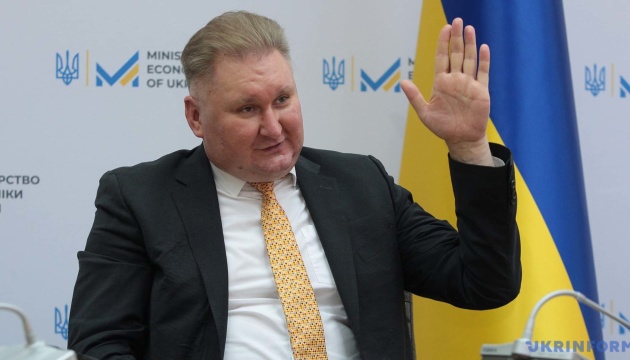




L’attaquant du Canadien Alex Newhook a été opéré à la cheville. L'absence de Kaiden Guhle se prolonge.


Il a à nouveau pris la majorité des répétitions avec la première unité à l'attaque des Alouettes.


La valeur des ventes du secteur canadien de la fabrication a atteint 72,1 milliards de dollars en septembre.

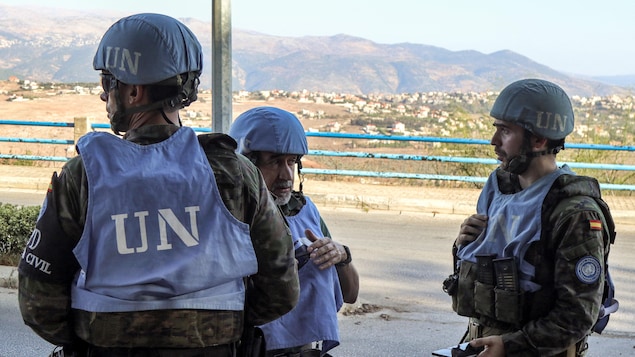
La Force intérimaire des Nations unies au Liban appelle l'armée israélienne à « respecter la Ligne bleue ».

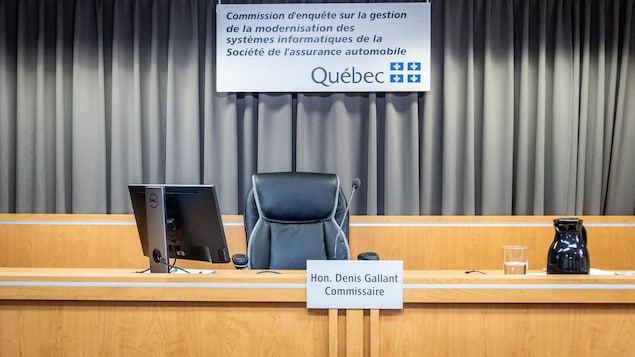
La commission Gallant a diffusé vendredi une estimation de ses coûts, en date du 31 octobre.



Voilà, les élections municipales sont derrière nous. Quelques promesses ont été faites par le maire de Rimouski, Guy Caron, dont régler l’épineux dossier du stationnement et des parcomètres intelligents au centre-ville.
L’opinion de Robin Lebel
L’utilisation de ces boîtes de tôle n’a rien de très agréable. Une fois l’application téléchargée sur notre cellulaire, j’en conviens, c’est un peu mieux. En passant, ma fille m’a évité la recherche et l’installation. Comme citoyens, nous n’avons pas tous cette chance. Les horodateurs peuvent s’utiliser sans cellulaire, mais c’est plus gossant.
Les 30 minutes accordées sont vraiment limitées, c’est le moins qu’on puisse dire. Des citoyens à la retraite m’ont d’ailleurs écrit à ce sujet. Leurs explications ne laissaient aucun doute sur leurs frustrations. Vous le savez, les pensions de vieillesse n’ont pas suivi le coût de la vie. L’argent se fait rare pour certains de nos bâtisseurs. Et en plus, ils ne sont pas à l’aise avec les horodateurs. Alors, ils prenaient parfois le risque de se faire prendre.

Ils m’ont donné quelques exemples, notamment la librairie. Comment bouquiner ou fouiner dans les boutiques de la rue Saint-Germain Ouest en quelques minutes, avec la peur de recevoir un constat ? Ils ont donc trouvé une solution toute simple : ils n’y vont plus.
Le problème est aussi décevant que désolant pour tout le monde. Tenez, la semaine dernière encore, j’ai dépassé les 30 minutes que j’avais payées. Je n’avais pas vu le temps passer. Résultat : 85 $ pour me rappeler de toujours porter ma montre. Mon garçon, lui, s’est fait vider les poches de 120 $ en face de l’église Saint-Robert. « Mal stationné », qu’on lui a dit. Le problème ? Aucun panneau n’indiquait que le stationnement y était interdit. Ça manque de rigueur, tout ça.
Des policiers à la retraite m’ont confié que le chiffre d’affaires des parcomètres de Rimouski aurait plus que doublé depuis que ce sont des employés embauchés qui s’en occupent. On est capitaliste, ou on ne l’est pas. Les gens ont raison de se plaindre. Les horodateurs ne sont pas conviviaux. Les 30 minutes accordées sont vraiment insuffisantes et, par surcroît, frustrantes. C’est devenu un problème : en affaires, on n’attire pas les mouches avec du vinaigre.
Il est temps d’avoir une vraie réflexion de la part de nos élus. Comme citoyens, nous voulons un peu d’accommodements lorsque nous nous déplaçons dans l’ouest de la ville. Il est temps que nos élus cessent de considérer les stationnements comme une simple source de revenus.

Cela me rappelle un problème qu’a connu Rimouski il y a quelques années : les entrées d’eau des propriétés étaient réparées aux frais des propriétaires, alors qu’ils payaient déjà annuellement, sur leurs comptes de taxes, les services d’aqueduc et d’égout. Une facture de 15 000 $ à 20 000 $ arrivait sans prévenir lorsqu’une entrée d’eau brisait.
On payait tout au long de l’année pour un service et, en cas de bris, on nous le facturait. Heureusement, les élus de l’époque ont corrigé la situation.
Aurons-nous droit à un peu de bon sens dans ce dossier ? Peut-être pourrait-on remettre les bons vieux parcomètres à monnaie sur la rue Saint-Germain Ouest. Disons 0,25 $ par tranche de 30 minutes pour les 90 premières minutes. Oui, offrir 90 minutes plutôt que 30.
Il n’y aurait pas d’abus : ce délai serait trop court pour les étudiants, dont les cours durent souvent deux heures ou plus au Cégep, et pour les employés du secteur, qui travaillent généralement au moins trois heures. Tout le monde y trouverait son compte. Quelle que soit la solution, il en faut une, et vite.
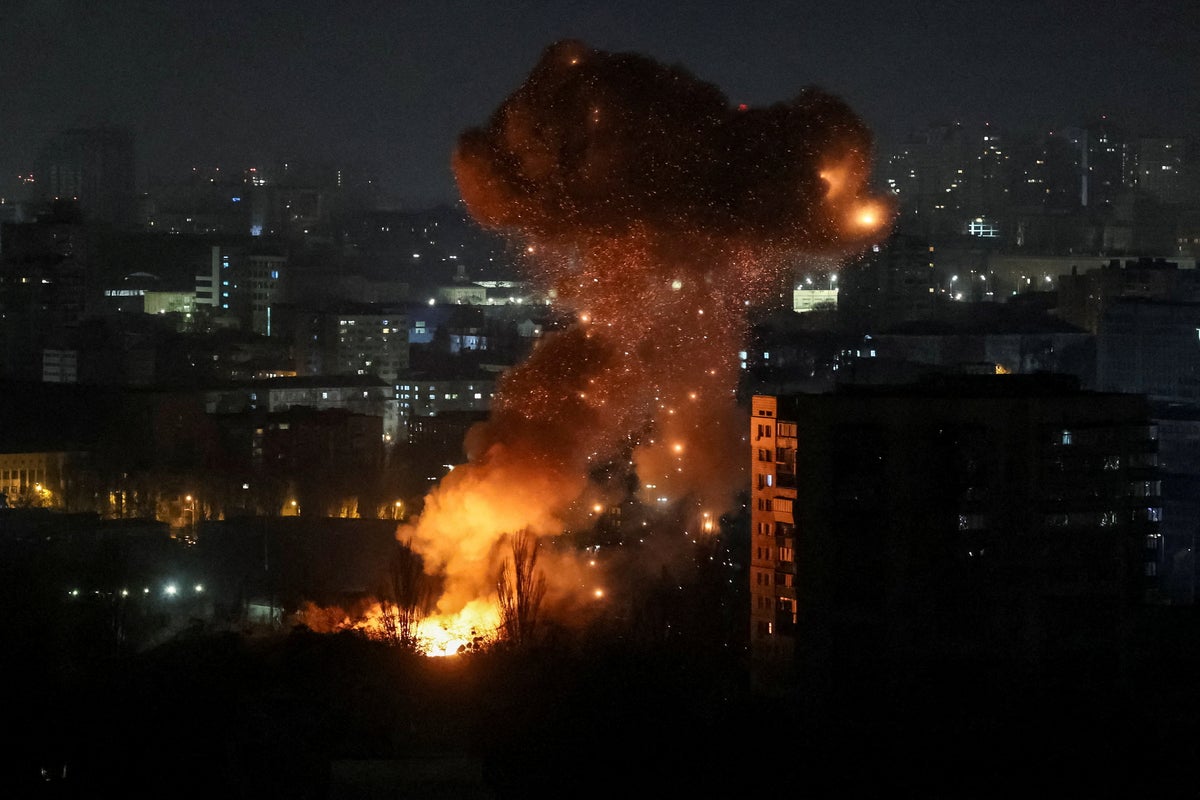
Russia is investing heavily in long-range drones as the nation bombards Ukraine

© ReutersREUTERS/Gleb Garanich



Il réclame une enquête sur la relation entre Jeffrey Epstein et l'ex-président démocrate.

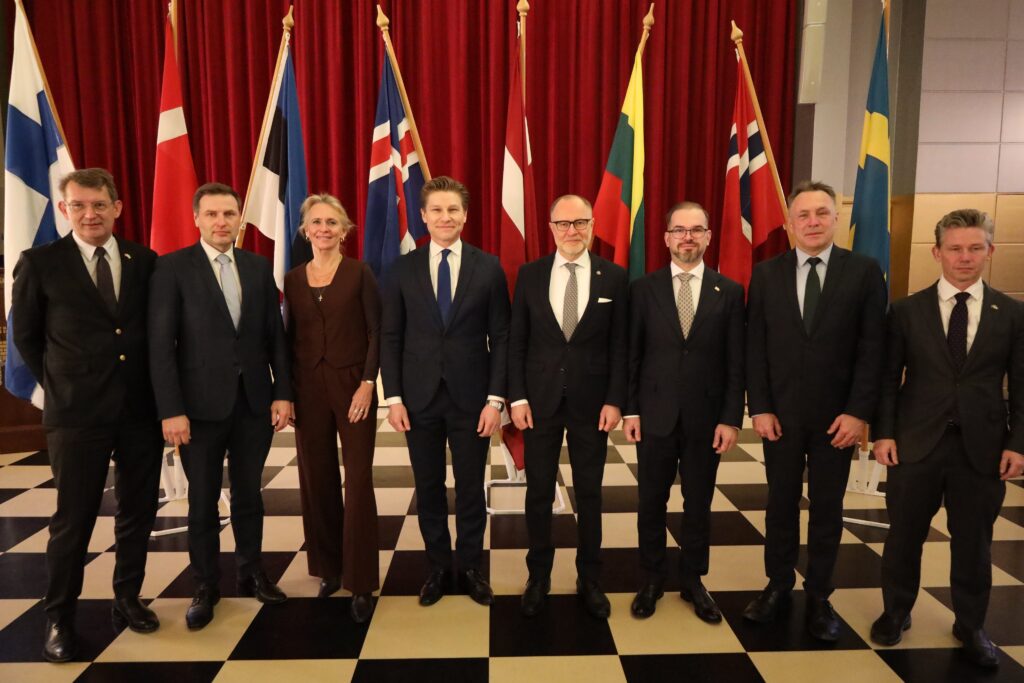

Eight Baltic and Nordic countries announced a joint $500 million weapons and munitions military aid package for Ukraine on 13 November.
The package is designed to strengthen Ukraine’s defence capabilities ahead of winter, as Russia intensifies strikes on civilian and energy infrastructure. It will supply critical weapons and ammunition sourced from the United States through NATO’s Prioritised Ukraine Requirements List (PURL) initiative.
The countries involved - Denmark, Estonia, Finland, Iceland, Latvia, Lithuania, Norway, and Sweden - confirmed the package during the Nordic-Baltic Eight (NB8) Defence Ministers’ meeting in Helsinki.
In a joint statement, they reaffirmed their commitment to Ukraine’s security, calling it “fundamental to European security” and emphasizing the need for long-term, coordinated military support.
The statement said the package is one of many ways the NB8 supports Ukraine’s ability to deter future Russian aggression. “We will not allow [Russia’s war of aggression] to succeed. Ukraine’s security is directly connected to ours,” the ministers said.
Finland, Denmark, Estonia, Iceland, Latvia, Lithuania, Norway and Sweden announced today that they will fund a USD 500 million package of defence materiel for Ukraine sourced from the United States.
— Puolustusministeriö (@DefenceFinland) November 13, 2025
Press release: https://t.co/84hkJTowV4 pic.twitter.com/a13IdUfK9z
The Prioritised Ukraine Requirements List (PURL) allows NATO allies to pool funds to purchase US-supplied weapons, munitions, and military equipment for Ukraine.
NATO Secretary General Mark Rutte welcomed the announcement: “This equipment is extremely important as Ukraine enters the winter months, and deliveries through PURL are flowing into Ukraine. NATO Allies will continue to deliver essential equipment and supplies.”
The aid package will provide high-priority military equipment such as missiles, precision weapons, air defence systems, long-range artillery shells, HIMARS rockets, and guided aerial bombs.
Norway’s Defence Minister Tore O. Sandvik noted that PURL ensures Ukraine receives urgent equipment quickly, and Sweden highlighted the package’s contribution to strengthening Ukraine’s air-defence capabilities.
Norway is contributing the largest share at roughly NOK 2 billion (~$200 million), Sweden $60 million, Denmark around 400 million Danish kroner (~$53 million), and Lithuania $30 million.
Lithuania also earmarked funds for next year and stressed the importance of using frozen Russian assets to support Ukraine’s defence spending.
The NB8 meeting also addressed broader initiatives, including training Ukrainian brigades in collaboration with Baltic, Nordic, and Polish forces. Lithuania will contribute €12 million worth of equipment, ammunition, grenades, and a mobile training team to the OP-LEGIO Training Centre in Poland.
Ministers emphasized that Russia’s aggression poses a long-term threat to European security, the transatlantic community, and the rules-based international order.
Estonia’s Foreign Minister Margus Tsahkna said maintaining support for Ukraine will remain central to the NB8’s agenda during Estonia’s presidency next year.
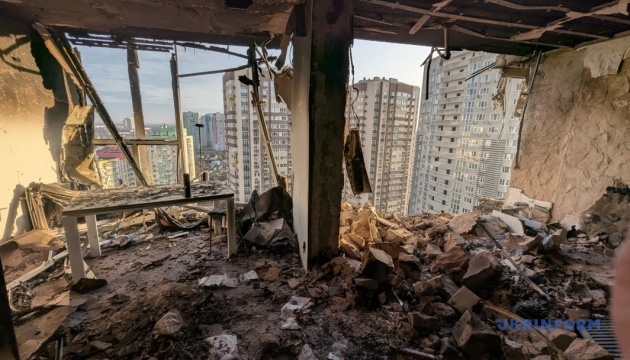

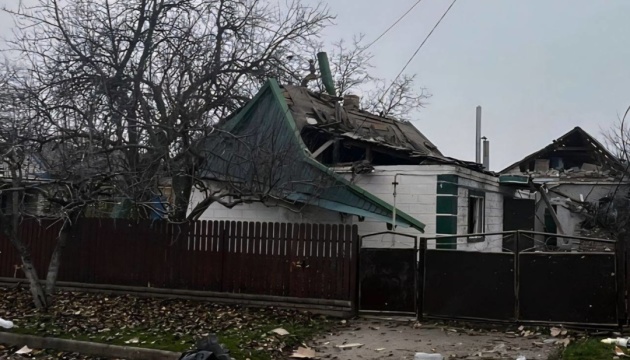




The Ontario Provincial Police’s anti-rackets branch is looking into a company that has received more than $40-million from the provincial government, in order to determine whether to launch a criminal investigation.
The force confirmed on Friday that the government had referred “suspicious activity” related to transfer payments to the company, an online counselling platform called Get A-Head.
© Spencer Colby


Jarrod Dyer Cambridge says he can go another week before washing his Tyson Philpot jersey — at least until the end of Sunday’s Grey Cup championship between the Montreal Alouettes and Saskatchewan Roughriders.
The Montrealer hasn’t washed the wide receiver’s No. 6 jersey since the Canadian Football League season began in June and has worn it to every Alouettes game since then. He believes leaving the jersey steeped in body odour is good luck — washing it can jinx the team.

Le président de l’équipe a bon espoir que le stade sera prêt en 2028 pour y jouer des matchs.


Ottawa devrait enregistrer un déficit moyen de 64,3 milliards de dollars au cours des cinq prochaines années.



An escalating corruption scandal at Ukraine's state nuclear operator Energoatom and the ongoing prosecution of former Ukrenergo chief Volodymyr Kudrytskyi are converging into a crisis that threatens Ukraine's ability to weather Russian attacks on its grid.
With Kyiv residents now enduring blackouts lasting 12 to 16 hours, the political turmoil has exposed gaping holes in protection for key energy sites—failures that current and former officials attribute to corruption and political interference, rather than Russian firepower alone.
The political crisis triggered a cascade: Western donors withdrew, protective construction stalled at critical energy facilities, and Ukraine's most vulnerable infrastructure faced Russian strikes without proper defenses.

The combined effect of corruption and political persecution deepened Ukraine's energy crisis by shutting down the main channel of Western financial support. International aid through Ukrenergo dropped to just 5-10% of previous levels after Kudrytskyi's September 2024 dismissal—from €1.5 billion over 18 months to a trickle.
Meanwhile, zero protective shelters were built for transformers at Energoatom, thermal power plants, and regional energy companies until autumn 2024, despite Ukrenergo completing approximately 60 such structures at its own facilities by September.
Oleksandr Kharchenko, director of the Energy Industry Research Center, told Suspilne that this loss of international backing is directly responsible for the severity of current blackouts—a consequence of institutional breakdown rather than Russian missiles alone.

The protection systems built at Ukrenergo, Ukraine's national electricity transmission system operator, and Energoatom, Ukraine’s nuclear operator, tell a tale of two radically different management systems.
Under Kudrytskyi's leadership, Ukrenergo partnered with the government's Agency for Restoration and Development of Infrastructure to construct approximately 60 anti-drone shelters for critical transformers by September 2024. These massive concrete structures—up to 25 meters tall—were designed specifically to withstand mass Iranian Shahed drone strikes.
The effectiveness proved remarkable. According to the Verkhovna Rada's temporary investigative commission cited by Kharchenko, out of 74 protected objects built by Ukrenergo and the Agency, only one autotransformer was destroyed by a direct hit from a heavy missile. The rest survived repeated attacks.
Kudrytskyi explained to Espreso that Ukrenergo secured several billion euros in aid—significantly more than Ukraine's entire Energy Ministry obtained. Western partners trusted the company's management and saw results. Between 2020 and 2024, Ukrenergo attracted $1.5 billion in grants and loans, becoming the second-largest recipient of international aid in Ukraine after the state itself.
But outside Ukrenergo's network, the picture was bleak. At the time of Kudrytskyi's dismissal in September 2024, zero protective shelters had been built for transformers at non-Ukrenergo sites—including Energoatom facilities, thermal power plants, and regional energy companies, according to Kudrytskyi in his interview with the BBC.
Kharchenko confirmed that Energoatom didn't even begin tendering for protective construction until late summer or early autumn 2024. The unprotected Energoatom substations and open switchgears became priority targets, he explained, and current blackouts stem directly from this failure to protect key generation facilities.
The delayed protection had a simple reason, Kharchenko suggested: some officials questioned whether such expensive fortifications were necessary at all.
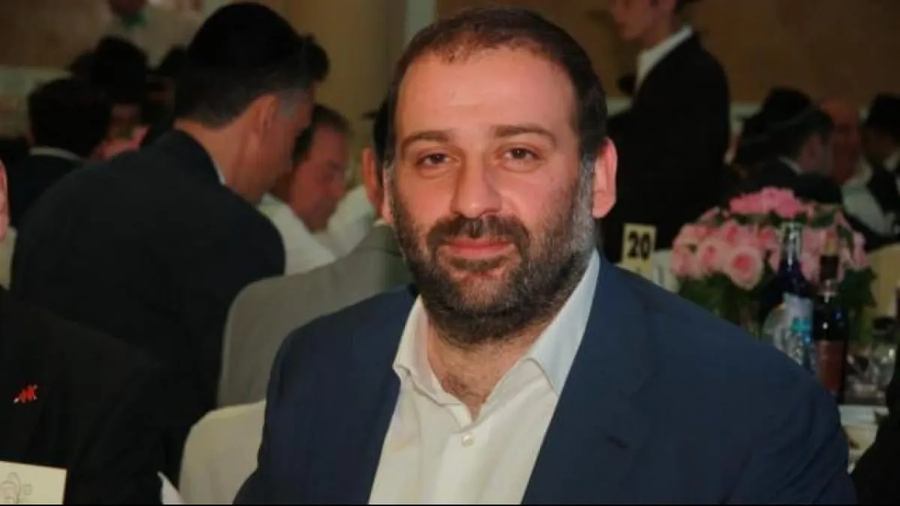
On 10 November 2025, Ukraine's National Anti-Corruption Bureau unveiled Operation Midas—a 15-month investigation documenting systematic corruption at Energoatom. Over 1,000 hours of surveillance recordings captured contractors openly discussing "Shlagbaum" (bar gate)—slang for the 10-15% kickbacks demanded from anyone wanting to work with the nuclear operator.
The scheme operated from a Kyiv office tied to Andrii Derkach, a former Ukrainian MP whom the US Treasury sanctioned in 2020 as "an active Russian agent" for election interference, and who now serves as a Russian senator.
Investigators identified businessman Tymur Mindich—President Volodymyr Zelenskyy's former comedy studio partner—as "Carlson," coordinating the money-laundering network.
Justice Minister Herman Halushchenko, who previously served as Energy Minister, appeared in recordings under the codename "Professor."
Mindich crossed Ukraine's border at 02:09 on 10 November—hours before NABU detectives arrived at his residence, raising immediate questions about information leaks. He's now believed to be hiding in Israel or Austria.
When asked about the $100 million NABU alleges was stolen through the Energoatom kickback scheme, Kharchenko was skeptical: "100 million—this is, well, maybe, 10%." The implication: the full corruption scale could reach $1 billion.

Between 2020 and 2024, Ukrenergo chief Kudrytskyi secured $1.5 billion for Ukrenergo from Western partners—triple what Ukraine’s entire Energy Ministry obtained. He ensured shelters were built from donor funds: "We didn't spend a single budget kopeck on those shelters that Ukrenergo built," he told Espreso.
He was dismissed in September 2024—and the money flow stopped. Western partners noticed: Two Western board members—Daniel Dobbeni and Peder Andreasen—quit Ukrenergo, calling the firing "politically motivated."
The dismissal triggered a financial crisis. While talking to Suspilne, Kharchenko explained that Ukrenergo failed to restructure its Eurobonds in coordination with Ukraine's sovereign debt restructuring, pushing the company into technical default. International lenders won't provide new credits to an entity in default, and grant-makers grew cautious.
This funding flow, built around trust for Kudrytskyi, collapsed. "When Kudrytskyi was dismissed, the main channel of Western support through Ukrenergo was effectively closed," Kharchenko explained. "We lost international support for Ukrainian energy. We've lost at least 80% of what we could have received."
The aid flow plummeted from €1.5 billion over 18 months to just 5-10% of previous capacity. Naftogaz now maintains Western trust with quality corporate governance, but can only support gas infrastructure—not the devastated electricity sector.
Kudrytskyi now faces fraud charges stemming from a 2018 fence reconstruction project. The case centers on bank guarantees that Ukrenergo properly collected when a contractor failed to complete work—a standard commercial transaction where the state suffered no losses.
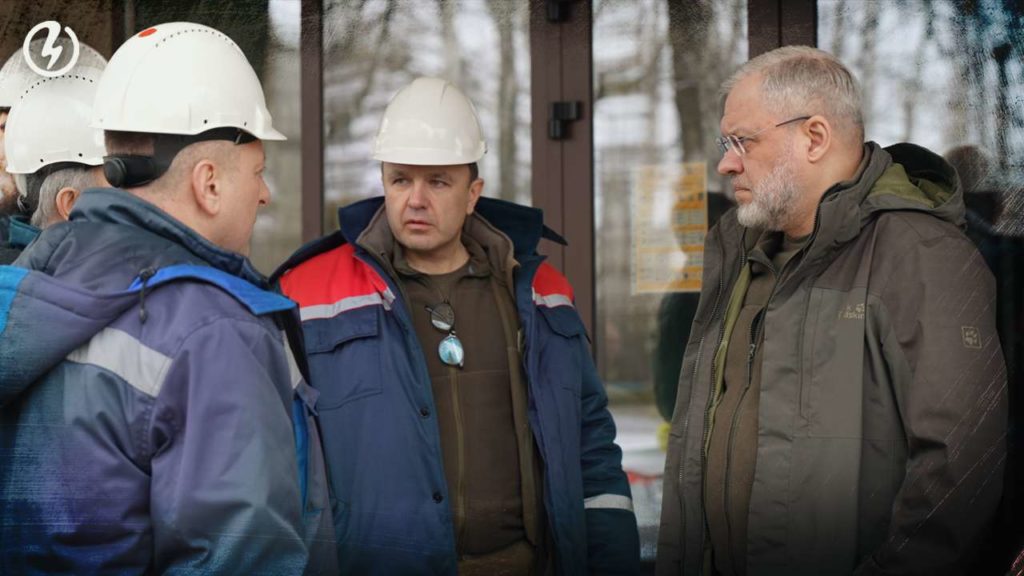
The charges materialized 14 months after his dismissal, following his public criticism of infrastructure protection failures by Energy Minister Herman Halushchenko—who was exposed in the Mindich tapes under the code name "Professor" within the criminal organization, according to information from the NABU investigation and reports from lawmakers.
For international donors—whether financial institutions or government aid agencies—trust and reputation of recipients matter fundamentally.
"When these donors see corruption scandals, or political interference in corporate governance, or political cases not backed by facts and made in half a day, this creates additional obstacles," Kudrytskyi told Espreso. "We don't have time to heroically overcome obstacles we create for ourselves."
Kudrytskyi has been accused of failing to ensure energy security, despite having left his position 14 months earlier. The disconnect puzzled observers.
Kharchenko offered an explanation. He sees that people in Zelenskyy's circle are exclusively friendly to Halushchenko—the former Energy Minister now serving as Justice Minister. "Herman Valeriyovych knows how to communicate with people—I assure you, in person he's very pleasant, charismatic, professional, and convincing," Kharchenko said. Most people surrounding the president evidently receive information through one channel.
"I don't see the president, in the energy sphere, inviting people who broadcast any alternative thoughts and assessments, and listening to what's wrong," Kharchenko told Novyi Vidlik.
The monopolized information flow means alternative assessments of infrastructure failures and protection gaps never reach decision-makers. "When you have energy being attacked and negative things happening, and people around you point fingers at each other or say everything's fine, but it's evidently not fine—a manager in such a situation would invite an alternative viewpoint," Kharchenko said. "I don't observe this situation."

Kharchenko predicted a predictable winter pattern: major Russian attack, followed by three to four days of severe disruption with 12-16-hour blackouts, then a gradual recovery until the next strike.
Three cities face the worst schedules: Kyiv, Odesa, and Kharkiv—massive consumption centers with insufficient internal generation. Kyiv and Odesa each face roughly one gigawatt power deficits. These cities will consistently endure the longest outages.
"I'm not an adherent of winter armageddon," Kudrytskyi told Espreso. "I don't think the energy system will collapse or there will be catastrophic consequences. We'll still survive the next winter. But of course, the question is the duration of outages and the degree of damage Russians can achieve to our facilities."
The strategic solution, both Kudrytskyi and Kharchenko emphasized, is accelerating distributed generation: replacing 15-20 large Soviet-era power plants vulnerable to missile strikes with hundreds of small gas, solar, and battery storage facilities scattered across Ukraine. Such a network would be exponentially harder for Russia to destroy and provide crucial regional resilience.
But distributed generation requires coordination, funding, and institutional trust—precisely what corruption and political persecution have destroyed.
The failure wasn't technical or financial. In summer 2023, authorities identified several hundred critical infrastructure objects requiring protection—not just Ukrenergo substations, but power plants, gas infrastructure, and other essential facilities.
From summer 2023, Ukrenergo and the restoration agency built protection for Ukrenergo substations. But what happened at other facilities?
In his Espreso interview, Kudrytskyi posed the critical questions:
The answer emerged in November 2025 surveillance recordings: some officials were too busy organizing kickback schemes to focus on infrastructure protection.
Anti-corruption lawyer Daria Kaleniuk wrote that persecution of government critics through fabricated criminal cases had become a trend. Western board members Daniel Dobbeni and Peder Andreasen quit Ukrenergo in September 2024, calling Kudrytskyi's dismissal "politically motivated."
Now Ukrainians endure 12-16 hour blackouts at the heart of this energy crisis—not because Russia attacks, though it does, but because institutions failed to build protection systems, maintain donor trust, or prioritize infrastructure over personal enrichment.
"Any effective action against corruption is very much needed," Zelenskyy said after the NABU raids. But the damage was done. The coordination failure between protection, prosecution, and politics left Ukraine's grid more vulnerable than Russian missiles alone could have achieved.


© Marwan Ali/Associated Press


© Kirsten Luce for The New York Times

